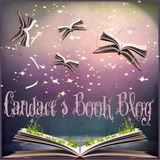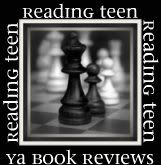All her life, Della's secret powers have made her feel separated from her human family. Now, she's where she belongs, at Shadow Falls. With the help of her best friends Kylie and Miranda, she’ll try to prove herself in the paranormal world as an investigator—all the while trying to figure out her own heart. Should she chose Chase, a powerful vampire with whom she shares a special bond? Or Steve, the hot shapeshifter whose kisses make her weak in the knees? When a person with dark connection to her past shows up, it’ll help her decide which guy to choose–and make her question everything she knows about herself.
From bestselling author C.C. Hunter comes Eternal—a must-read for fans of the Shadow Falls series—and the sequel to Reborn.
Three Tips for Writing a Young Adult Paranormal Series
1.
It doesn’t matter if you are writing vampires,
shape-shifters, or hunchback dragons, if you are writing for teens you need to get
in touch with your inner teen.
I didn’t set out to write young adult
novels. I was dragged here kicking and
screaming. LOL. I was writing humorous romantic suspense
novels, when I was approached to write a YA series. You see, it had been quite a few years since
I’d been a teen. Did I know what was
important to today’s teens? Did I know
what they wanted, what they feared, what made them laugh? I worried I’d fail at trying to write from a
teen’s perspective. So the first thing I
did was take a stroll down memory lane.
It wasn’t a walk in the park either. You see, I didn’t have what I would call the
ideal teenage life. It wasn’t until
midway through that mental journey that I realized this was going to work in my
favor. I decided right then and there to
plagiarize. From my own life, of
course. Along this path, I realized
that everything that had been important to me as a teen was still relevant to
teens today. As a young adult I’d dealt
with sex, alcohol, drugs, and negative self-esteem. These issues are still what our teens deal
with today. And to write a novel that
will resonate with teens, you need to be able to remember how you related,
feared, longed for and dealt with those four things.
2.
Don’t attempt to write a message to the young
people.
It’s important to remember that your job as
a novelist is to entertain. Definitely not to preach. Not to teach, or even to inspire. Now, before you start getting your backs up,
let me explain. Preaching is out. Completely.
Today’s teens do not want to preached at. Nor do they read novels to be taught
something. They read text books to be
taught. They don’t pick up fictional
books to be inspired to be a better person.
They read to be entertained.
That said, books can be fabulous tools for
teens to learn from and can offer tons of inspiration. But it’s not you who should do this. It’s your characters. Whatever problems your characters face and
the lessons they learn from them will offer an opportunity for the reader to
learn as well. Whatever inspires your
character is a chance to inspire your reader.
Almost all story characters have arcs.
They will grow within a book’s lifespan.
Find your character’s arc, show them struggling to overcome hurdles,
show their growth. And while your
readers turn those pages, enthralled with your story, your book will have
offered them not only entertainment, but something that may help them as they
journey through their own lives.
3.
Never give up!
You have to love to write. You have to love to learn. The journey from unpublished author to
published author can be difficult. More
difficult for some than others. Each of
us starts this journey with our strengths and weaknesses. Some writers were born knowing what a
dangling participle is. Some are comma
impaired and terrible spellers. Some are
natural storytellers. Some have learned
pacing and conflict just from reading.
Others have read all their life and still need to learn the tricks of
the trade. The truth is, more important
than what you know is your willingness to learn. And how long you are willing to persevere.
Being dyslexic, I struggled with the
written word all my life—still do. The day I decided to become a writer, I had
to learn to spell it. If I had any natural talent, it was
storytelling, but it was a long road from there to finishing a rough
draft. It was ten years from the time I
started writing to the time I published my first book. That might sound tough, but it got
tougher. It was thirteen more years
before my second book was sold. Some people think of me as an overnight
success, and I want to ask them, “Exactly what night was that in those
twenty-three years that it happened?”
It was not one night. It was a journey. As rejections rolled in, and I have thousands
of them, it would have been easy to give up.
But being a writer was my dream.
I was willing to take this journey even knowing there were no
guarantees. Why? Because I loved writing. And that is my parting advice. Write because you love it. There is nothing wrong with working toward
publication and financial gain. But if
that had been the reason I was writing, I don’t think I’d have hung in there for
twenty-three years.

































No comments:
Post a Comment
Thanks for commenting!